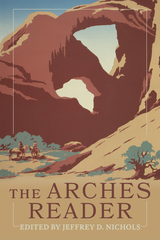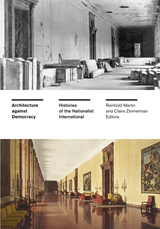110 start with H start with H
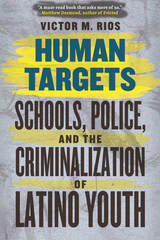
In Human Targets, Rios takes us to the streets of California, where we encounter young men who find themselves in much the same situation as fifteen-year-old Victor. We follow young gang members into schools, homes, community organizations, and detention facilities, watch them interact with police, grow up to become fathers, get jobs, get rap sheets—and in some cases get killed. What is it that sets apart young people like Rios who succeed and survive from the ones who don’t? Rios makes a powerful case that the traditional good kid/bad kid, street kid/decent kid dichotomy is much too simplistic, arguing instead that authorities and institutions help create these identities—and that they can play an instrumental role in providing young people with the resources for shifting between roles. In Rios’s account, to be a poor Latino youth is to be a human target—victimized and considered an enemy by others, viewed as a threat to law enforcement and schools, and burdened by stigma, disrepute, and punishment. That has to change.
This is not another sensationalistic account of gang bangers. Instead, the book is a powerful look at how authority figures succeed—and fail—at seeing the multi-faceted identities of at-risk youths, youths who succeed—and fail—at demonstrating to the system that they are ready to change their lives. In our post-Ferguson era, Human Targets is essential reading.

The disciplines now known as the humanities emerged in their modern form during the Italian Renaissance as the result of an educational movement begun by humanist teachers, writers, and scholars in the early fourteenth century. These educators argued for the usefulness of classical literature as an instrument for training young men and women, not only in the arts of language and eloquence, but also in civic virtue and practical wisdom.
This volume provides new translations, commissioned for the I Tatti Renaissance Library, of four of the most important theoretical statements that emerged from the early humanists’ efforts to reform medieval education: Pier Paolo Vergerio, “The Character and Studies Befitting a Free-Born Youth”; Leonardo Bruni, “The Study of Literature”; Aeneas Silvius Piccolomini (Pope Pius II), “The Education of Boys”; and Battista Guarino, “A Program of Teaching and Learning.”
The original text of these four documents with Craig W. Kallendorf’s translation is also available in a facing-page edition.

The cycle of disciplines now known as the humanities emerged in their modern form during the Italian Renaissance as the result of an educational movement begun by humanist teachers, writers, and scholars of the early Quattrocento. The movement argued for the usefulness of classical literature as an instrument for training young men and women, not only in the arts of language and eloquence, but also in civic virtue and practical wisdom. This volume contains four of the most important theoretical statements that emerged from the early humanists’ efforts to reform medieval education.
The four texts are Pier Paolo Vergerio, “The Character and Studies Befitting a Free-Born Youth”; Leonardo Bruni, “The Study of Literature”; Aeneas Silvius Piccolomini (Pope Pius II), “The Education of Boys”; and Battista Guarino, “A Program of Teaching and Learning.” The Vergerio and Guarino texts appear in English for the first time.
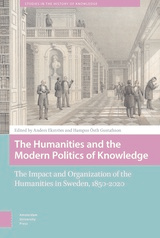

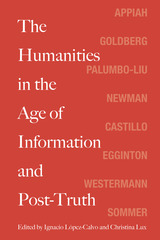
While the reader may suspect that these types of lucubration are a desperate reaction to decreased public funding for the humanities worldwide, a decreased enrollment of students, or anxiety over the future of our profession, there is in this volume a coherent argument for the continued need, perhaps more now than ever, to invest in humanities education if we are to have informed and socially conscious citizens rather than just willing consumers and obedient workers. Furthermore, the essays prove that the humanities and the arts are, after all, not a luxury but an integral part of a complete scholarly education.
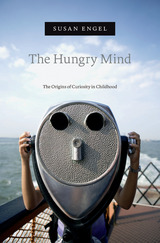
Despite American education’s recent mania for standardized tests, testing misses what really matters about learning: the desire to learn in the first place. Curiosity is vital, but it remains a surprisingly understudied characteristic. The Hungry Mind is a deeply researched, highly readable exploration of what curiosity is, how it can be measured, how it develops in childhood, and how it can be fostered in school.
“Engel draws on the latest social science research and incidents from her own life to understand why curiosity is nearly universal in babies, pervasive in early childhood, and less evident in school…Engel’s most important finding is that most classroom environments discourage curiosity…In an era that prizes quantifiable results, a pedagogy that privileges curiosity is not likely to be a priority.”
—Glenn C. Altschuler, Psychology Today
“Susan Engel’s The Hungry Mind, a book which engages in depth with how our interest and desire to explore the world evolves, makes a valuable contribution not only to the body of academic literature on the developmental and educational psychology of children, but also to our knowledge on why and how we learn.”
—Inez von Weitershausen, LSE Review of Books
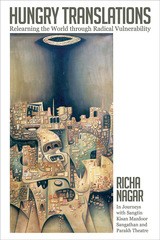
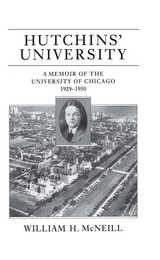
Hutchins' scathing opposition to the departmentalization of learning and his resounding call for reforms in general education sparked controversy and fueled debate on campus and off. It became a struggle for the heart and soul of higher education—and McNeill, as a student and then as an instructor, was a participant. His account of the university's history is laced with personal reminiscences, encounters with influential fellow scholars such as Richard McKeon, R. S. Crane, and David Daiches, and details drawn from Hutchins' papers and other archives.
McNeill sketches the interplay of personalities with changing circumstances of the Depression, war, and postwar eras. But his central concern is with the institutional life of the University, showing how student behavior, staff and faculty activity and even the Hyde Park neighborhood all revolved around the charismatic figure of Robert Maynard Hutchins—shaped by him and in reaction against him.
Successive transformations of the College, and the tribulations of the ideal of general or liberal education are central to much of the story; but the memoir also explores how the University was affected by such events as Red scares, the remarkably successful Round Table radio broadcasts, the
abolition of big time football, and the inauguration of the nuclear age under the west stands of Stagg Field in 1942.
In short, Hutchins' University sketches an extraordinarily vibrant period for the University of Chicago
and for American higher education. It will revive old controversies among veterans from those times, and may provoke others to reflect anew about the proper role of higher education in American society.

The prefix “hyper” refers to multiplicity and abundance. More than a physical space, a hypercity is a real city overlaid with information networks that document the past, catalyze the present, and project future possibilities. Hypercities are always under construction.
Todd Presner, David Shepard, and Yoh Kawano put digital humanities theory into practice to chart the proliferating cultural records of places around the world. A digital platform transmogrified into a book, it explains the ambitious online project of the same name that maps the historical layers of city spaces in an interactive, hypermedia environment. The authors examine the media archaeology of Google Earth and the cultural–historical meaning of map projections, and explore recent events—the “Arab Spring” and the Fukushima nuclear power plant disaster—through social media mapping that incorporates data visualizations, photographic documents, and Twitter streams. A collaboratively authored and designed work, HyperCities includes a “ghost map” of downtown Los Angeles, polyvocal memory maps of LA’s historic Filipinotown, avatar-based explorations of ancient Rome, and hour-by-hour mappings of the Tehran election protests of 2009.
Not a book about maps in the literal sense, HyperCities describes thick mapping: the humanist project of participating and listening that transforms mapping into an ethical undertaking. Ultimately, the digital humanities do not consist merely of computer-based methods for analyzing information. They are a means of integrating scholarship with the world of lived experience, making sense of the past in the layered spaces of the present for the sake of the open future.
READERS
Browse our collection.
PUBLISHERS
See BiblioVault's publisher services.
STUDENT SERVICES
Files for college accessibility offices.
UChicago Accessibility Resources
home | accessibility | search | about | contact us
BiblioVault ® 2001 - 2024
The University of Chicago Press



